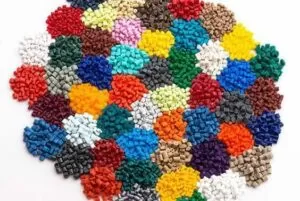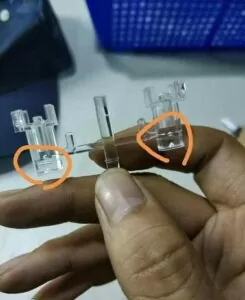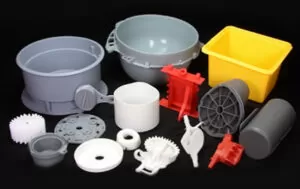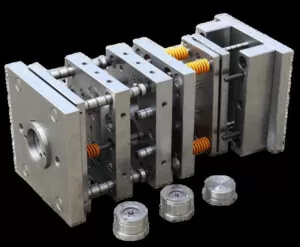Introduction
Injection molding resins form the backbone of modern manufacturing, aiding production of numerous plastic components we encounter on an almost daily basis. Their significance cannot be overstated as they form the basis of plastic injection molding resins itself and selecting an optimal resin selection is vital to its success. We dive deep into the world of injection molding resins here by discussing their diverse types, unique properties and how important their role in modern manufacturing really is – understanding these resins carefully is integral to their successful utilization in plastic injection molding processes!
II. Understanding Injection Molding Resins
Resin Injection Molding Resins Are Key Components for Precision Manufacturing
Injection molding resins, commonly referred to as the lifeblood of this manufacturing technique, form the cornerstone of this production method and enable plastic components we encounter daily to be created. From raw feedstock through production steps until final products arrive on store shelves containing them as finished goods – injection molding resins play a pivotal role in shaping properties, characteristics and performances that impact final plastic pieces produced through plastic injection molding processes.
Resins Are Essential Components in Injection Molding Process
Injection molding resins serve as the raw material of plastic injection molding technique processes. From their initial appearance as small pellets or powder, with heat and pressure they transform into desired forms within molds for plastic injection molding applications ranging from intricate medical devices to robust automotive parts. This versatility of injection molding resins demonstrates their endless uses; from intricate medical devices to robust automotive parts.
Resin Selection Is Essential
Selecting an ideal resin is more than an aesthetic consideration; it is key in determining the success of injection molding processes. Selecting the most appropriate resin has far-reaching ramifications on attributes of final products like heat resistance, flexibility and cost effectiveness – not to mention impactful attributes such as its heat resistance or chemical compatibility with chemicals used during processing.
Understanding the significance of resin selection is of great significance in order to meet specific application requirements, producing durable, efficient and high-quality plastic components that last over time. Manufacturers seeking excellence must recognize this role of resins during injection molding processes for creating precision products.
III. Common Types of Injection Molding Resins
Injection molding utilizes an extensive selection of resins, each chosen for its individual properties and suitability for specific applications. Here, we take a brief glimpse at several commonly-used plastic injection molding material resins as well as their specific attributes.
Low Density Polyethylene (LDPE) Resins: Low Density Polyethylene (LDPE) resins are well known for their soft yet flexible nature as well as outstanding impact resistance – ideal characteristics found in products like plastic bags and packaging materials.
High Density Polyethylene (HDPE) Resins: HDPE boasts impressive strength, durability, and moisture resistance properties that make it suitable for applications including containers, bottles and pipes. Polypropylene Resins (PP Resins): For applications such as these requiring added flexibility or increased moisture resistance PP resins provide ideal solutions.
Polypropylene resins are lightweight materials renowned for their chemical resistance. Applications range from automotive components and packaging, through consumer goods production. Attractive alternatives to Polypropylene include PVC Resins which have superior characteristics of chemical resistance as well as applications across a range of markets such as packaging.
PVC plastics are well known for their extraordinary chemical resistance and fire retardancy properties, making it popularly used across a range of sectors – construction materials to medical devices. Polystyrene Resins (PS Resins)
PS resins are known for their adaptable rigidity. Applications range from disposable cutlery and packaging materials, through toys.
Polycarbonate (PC) Resins:
Polycarbonate material is exceptionally resilient and impact-proof, and finds application across eyewear lenses, automotive components and electronic enclosures.
Acrylonitrile Butadiene Styrene (ABS) Resins offer another application option suited to its strong impact-resistance properties.
ABS resin combines the toughness and rigidity of both acrylonitrile butadiene (ABN) and styrene, making it a go-to material for consumer electronics, automotive parts and toys. Polyethylene Terephthalate (PET) Resins:
PET plastic resin injection molding is an economical, light material commonly utilized in beverage bottles, food packaging and textile fiber applications.
Nylon (Polyamide) Resins: Nylon is prized for its combination of strength, flexibility, and wear resistance – characteristics which have made it popular across numerous applications like automotive components and sports gear.
PMMA, commonly referred to as acrylic, offers excellent optical clarity. As such it finds applications such as lenses for eyeglasses or signs and displays.
Polyurethane (PU) Resins: Thermoplastic polyurethane resins exhibit exceptional abrasion resistance and can vary in terms of rigidity or flexibility depending on their application – it’s commonly employed in foam cushioning products, coatings and adhesives.
POM (also referred to as Acetal) is an ultra high strength low friction material commonly found in precision engineering applications and gears.
TPE Resins:
TPEs combine the characteristics of both rubber and plastic, making them suitable for overmolding, gasketing and soft-touch grip applications.
These common injection molding resins offer manufacturers many choices to meet specific requirements – be they strength, flexibility or chemical compatibility. The key to injection molding lies in selecting a resin which best embodies your vision into an actualized product.
IV. Polyethylene (PE) Resins
Polyethylene (PE) resins are versatile thermoplastic resins widely utilized for injection molding applications. Within this category there are various subsets, low density polyethylene (LDPE) and high density polyethylene (HDPE) being two prominent ones; each variety possessing specific qualities for use across industries.
1. Low Density Polyethylene (LDPE):
Applications: LDPE plastic is known for its soft, flexible nature and excellent impact resistance – characteristics which make it suitable for applications where resilience and pliability are crucial, including plastic bags, packaging material and squeeze bottles.
Characteristics: Low Density Polyethylene (LDPE) resin has an easy melting point that makes processing simple. Being naturally transparent makes LDPE the go-to resin in applications where clarity is paramount – however it has lower tensile strength compared to its peers in this classification.
2. High Density Polyethylene (HDPE):
For applications where clarity and transparency are crucial.
Applications: HDPE plastic lumber is prized for its strength, durability and moisture-proof qualities, making it suitable for more robust uses like containers, bottles and pipes. Furthermore, due to these characteristics it makes HDPE a good material choice when transporting or storing liquids, such as milk jugs and detergent bottles production.
HDPE boasts an exceptional melting point for excellent heat resistance. Additionally, its dense molecular structure creates a rigid and sturdy material. Furthermore, HDPE stands out with low moisture absorption rates and chemical resistance features making it suitable for many industries.
Overall, polyethylene resins boast a range of properties that make them suitable for various uses and projects. Their properties vary significantly – flexible LDPE offers impact resistance while HDPE stands out with strength, heat resistance and moisture resistance, making it the go-to choice for durable containers and pipes. Which type is appropriate depends upon project needs – making sure the right PE resin meets performance criteria while maintaining desired characteristics and qualities.
V. Polypropylene Resins
Versatility and Common Applications of Polypropylene Resins
Polypropylene (PP) resins have long been revered for their wide array of industrial uses and versatility, boasting applications across industries. Thanks to its combination of properties, PP resins remain one of the most-popular resins used for injection molding applications.
Common Uses:
Packaging: P.P (polypropylene) plastic film is often utilized by packaging industries for producing caps, closures, containers and bottles to protect a range of products from moisture damage and loss. With its lightweight nature and moisture repellent properties it makes an excellent material choice to utilize as part of product protection measures.
Automotive Components: Polypropylene’s strength, cost-efficiency and ability to withstand harsh environments makes it a popular material choice for automotive parts like bumpers, interior trim and battery cases.
Consumer Goods: Polypropylene can be found in an array of consumer goods such as toys, appliances and furniture; its lightweight yet resilient nature making them desirable choices.
Characteristics:
Lightweight: Polypropylene (PP) stands out for being lightweight, making it an attractive material choice when weight is an important consideration. Chemical Resistance: PP also exhibits excellent chemical resistance properties which allow it to endure exposure to various chemicals without degrading over time.
Polypropylene resins boast an array of versatile properties that enable them to meet a diverse array of applications, spanning packaging to automotive to consumer goods manufacturing industries and beyond. Their lightweight nature and resistance to chemicals makes PP resins highly sought-after materials in manufacturing applications worldwide. Their popularity with manufacturers continues to drive them forward today.
VI. Other Resins: PVC, PS, PC, ABS
Diverse Resins for Varied Needs
Aside from polypropylene, several other essential resins are frequently used in injection molding. Each of these resins offers a distinct set of characteristics and applications, meeting diverse manufacturing needs.
1. Polyvinyl Chloride (PVC):
Distinctive Features: PVC is known for its excellent chemical resistance and fire-retardant properties. It can be rigid or flexible, depending on the formulation.
Common Applications: PVC is widely used in construction materials, such as pipes, profiles, and vinyl flooring. It also finds its place in the medical industry for items like IV bags and tubing. Additionally, PVC is commonly used in electrical cable insulation.
2. Polystyrene (PS):
Distinctive Features: PS is transparent and rigid, often used in applications where clarity is essential.
Common Applications: PS is found in items like disposable cutlery, packaging materials, toys, and CD cases. Its optical clarity makes it a suitable choice for products where aesthetics are important.
3. Polycarbonate (PC):
Distinctive Features: PC resins are exceptionally strong and impact-resistant, with high heat resistance.
Common Applications: PC is employed in the production of eyewear lenses, automotive components, medical devices, and electronic enclosures. Its ability to withstand high impacts and high temperatures makes it valuable in applications where safety and durability are paramount.
4. Acrylonitrile Butadiene Styrene (ABS):
Distinctive Features: ABS combines acrylonitrile and butadiene with the rigidity of styrene, offering good chemical resistance and impact resistance.
Common Applications: ABS is used in a wide range of applications, including consumer electronics, automotive parts, and toys. Its balance of strength, impact resistance, and affordability makes it a versatile choice for various consumer products.
These diverse resins cater to different requirements, offering a wide array of properties. Whether it’s PVC’s chemical resistance in construction materials, PS’s optical clarity for packaging, PC’s strength in eyewear, or ABS’s balance of strength and impact resistance in consumer goods, these resins are essential in manufacturing various products across industries. The selection of the right resin depends on the specific application’s needs and desired characteristics.
VII. Specialty Resins: Nylon, PMMA and PU
Meet Specific Needs with Resin Solutions
Specialty resins provide custom solutions to diverse industrial needs, providing properties and performance benefits not found in standard resins.
1. Nylon (Polyamide) Resins:
Noteworthy Features: Nylon resins provide exceptional strength, flexibility, wear resistance and mechanical stress resistance properties that set them apart from competing materials.
Specialized Applications: Nylon is used extensively within the automotive industry due to its robust properties; gears, bearings and engine components often utilize Nylon materials. Nylon also finds use as sports equipment such as skis, tennis rackets and fishing lines.
2. Polymethyl Methacrylate (PMMA):
PMMA can also be found within this material category and used as gears and bearings in automobiles.
Distinctive Features: PMMA, commonly referred to as acrylic, has excellent optical clarity. Furthermore, its UV radiation resistance and weatherability makes it an attractive material.
Specialty Applications: PMMA is frequently employed in the sign and display industry due to its optical clarity and weatherproof qualities, making it suitable for signage as well as lenses, lighting fixtures, and automotive taillights.
3. Polyurethane (PU):
These resins offer superior abrasion resistance. Their durable construction enables them to absorb impacts with no risk of shattering.
Specialized Applications: Polyurethane foam cushions can be found in furniture and footwear, coatings on industrial equipment, construction adhesives and automobile assemblies, making PU an invaluable material in industries requiring comfort and durability.
These specialty resins were developed to meet the specific requirements of industries with rigorous demands. From automotive parts that rely on nylon’s toughness for mechanical components to sign and display industry that utilize PMMA optical clarity for signs and displays and the multiple uses for PU such as cushioning coatings and adhesives; these specialized resins offer tailored solutions for industries across various sectors that rely heavily on them. Their unique properties contribute significantly towards product success and durability across various sectors.
Conclusion
Our exploration of injection molding resins revealed many options designed to fit different industries and applications. Here are our takeaways:
Diverse Options: Plastic resins for injection molding come with many distinct properties and characteristics, ranging from soft yet flexible LDPE to strong and impact-resistant HDPE and from transparent PS to impact-resistant ABS – giving manufacturers plenty of choices from which they can select resins for injection molding applications.
Resin Applications in Different Industries: Resins have numerous uses across many different industries, from packaging materials and automotive components to consumer goods, construction materials and medical devices – there is something suitable out there for each individual need.
Specialty Resins: For applications that have unique requirements, specialty resins like Nylon, PMMA and PU provide tailored solutions ranging from sports equipment to optical lenses.
Selecting an Appropriate Resin: Selecting the ideal resin is key for successful production of plastic components. When making this decision, factors like heat resistance, chemical compatibility and material properties should all play an important role. Selecting an incompatible resin could result in product failure as well as higher production costs if selected incorrectly.
Understanding the various injection molding resins and their applications is invaluable for manufacturers. Selecting materials not just means selecting them with precision but with care too – understanding this aspect directly impacts performance, durability, and cost-effectiveness of final products.
Success in injection molding requires more than simply manufacturing; it’s an art. By understanding which resins best suit their manufacturing processes, manufacturers can unlock precision and excellence for more reliable production lines that yield groundbreaking and high-quality products that change our world.

















